The British food industry relies excessively on trust and paper-based reassurance about food content, as opposed to random testing at every stage of the food chain, the environment secretary, Owen Paterson, has admitted.
Giving a Commons statement on the escalating horsemeat scandal, Paterson said he wanted to see random testing introduced as quickly as possible.
"There is too much faith in the paper which records what is the consignment. I would very much like to see more random testing of products as they arrive and are half way through the process. It is a most important point," he said.
Paterson has already ordered food retailers to test their meat products by Friday so the results can be published. He said he now wanted testing by retailers to take place every three months, with the Food Standards Agency (FSA) notified of results.
The government is determined to make sure the political blame for the scandal lies with the food industry and the labellers rather than any lapse of ministerial regulation.
"It is really important that the retailers get out there and sell their systems and their products to keep the faith of the consumer," Paterson said. "It is for the retailers to prove they can reassure their customers."
Paterson's remarks reflect ministerial frustration that the leading supermarkets have failed to do more to defend themselves in the media. "With the exception of Morrison's, where have they been?" said one government source.
Paterson repeatedly said it was an issue of "fraud and labelling", and added: "Sadly there is very significant money to be made from the illegal meat trade."
But he faced criticism from the shadow environment secretary, Mary Creagh, who said consumer confidence in the food industry was sinking like a stone.
Creagh claimed there were an estimated 70,000 horses unaccounted for in Northern Ireland, where unwanted horses were given false paperwork before being sold for €10 each and then resold to dealers for meat for as much as €500 [see footnote].
She said that while Poland and Romania were being "conveniently" blamed for the scandal, the contamination problem had started across the Irish Sea.
She said in the Commons: "The Ulster Society for the Prevention of Cruelty to Animals have clear evidence of an illegal trade of unfit horses from Ireland to the UK for meat, with horses being re-passported to meet demands for horse meat in mainland Europe.
"The French government estimates that the Findus fraud alone has netted criminals €300,000. This is clearly big criminal business."
Paterson faced sceptical questions from both sides of the Commons, including whether his department had been wise to close down the national equine database in December last year.
He was also asked why responsibility for food labelling had been taken from the FSA in 2010 and was now divided between his department, the Department of Health and the FSA.
Paterson had a dig at the supermarkets, saying there was a strong case for more people buying local as there was clearer traceability in such a system.
He said there was no greater supporter of British beef than himself. "We have splendid cattle, we have very rigorous traceability systems, strictly run abattoirs."
Paterson, a noted Eurosceptic, pointed out that many issues were the responsibility of the EU commission, but claimed he had excellent co-operation from the commission and saw no case for a ban on EU imports.
Any ban on imports would be decided by Brussels, not a member state, and orders can only be made on the basis of safety issues.
He said the "ultimate source" of the problem was not yet known but agencies including Interpol were investigating a supply network that stretched across Europe.
"Once we have established the full facts of the current incidents and identified where enforcement action can be taken, we will want to look at the lessons that can be learned from this episode," he said.
Paterson was criticised for what was described as a laid-back approach, including his failure to send advice to schools and hospitals until late Sunday night. He said he had been as active as necessary.
"Once we have established the full facts of the current incidents and identified where enforcement action can be taken, we will want to look at the lessons that can be learned from this episode," Paterson told MPs.
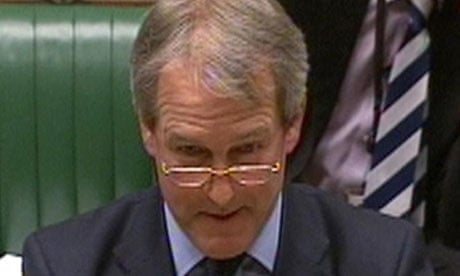
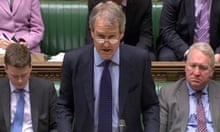
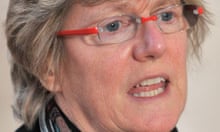
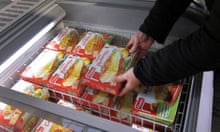
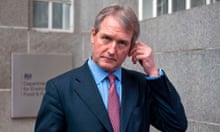
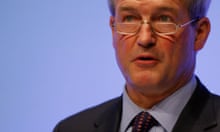
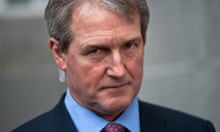

Comments (…)
Sign in or create your Guardian account to join the discussion